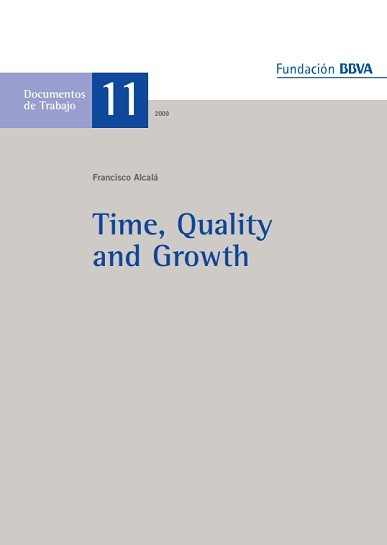
PublicationWorking Papers
Time, Quality and Growth
Consumption requires time (consumption and time are complements of each other). In addition higher-quality goods provide more utility per unit of time allocated to consumption, though at a higher monetary cost. Since time is limited, higher income is decreasingly spent augmenting the number of units of goods being consumed and increasingly spent upgrading their quality.
After analyzing the basic microeconomics of consumer quantity/quality choices, this working paper investigates its implications on growth. As a country develops, raising the quality of output becomes increasingly important as a component of gross domestic product (GDP) growth relative to quantity growth. Furthermore technological progress is increasingly quality-biased. Lower income inequality raises the scale of output while reducing average quality. This is positive for technical progress and growth at early stages of economic development but may be negative at later stages.
These results are broadly consistent with the existing empirical evidence on the composition of GDP growth, international trade patterns of vertical specialization across countries, and the nonlinearity of the impact of inequality on growth. This working paper also explores the potential role of progressive consumption taxes as a growth policy.
